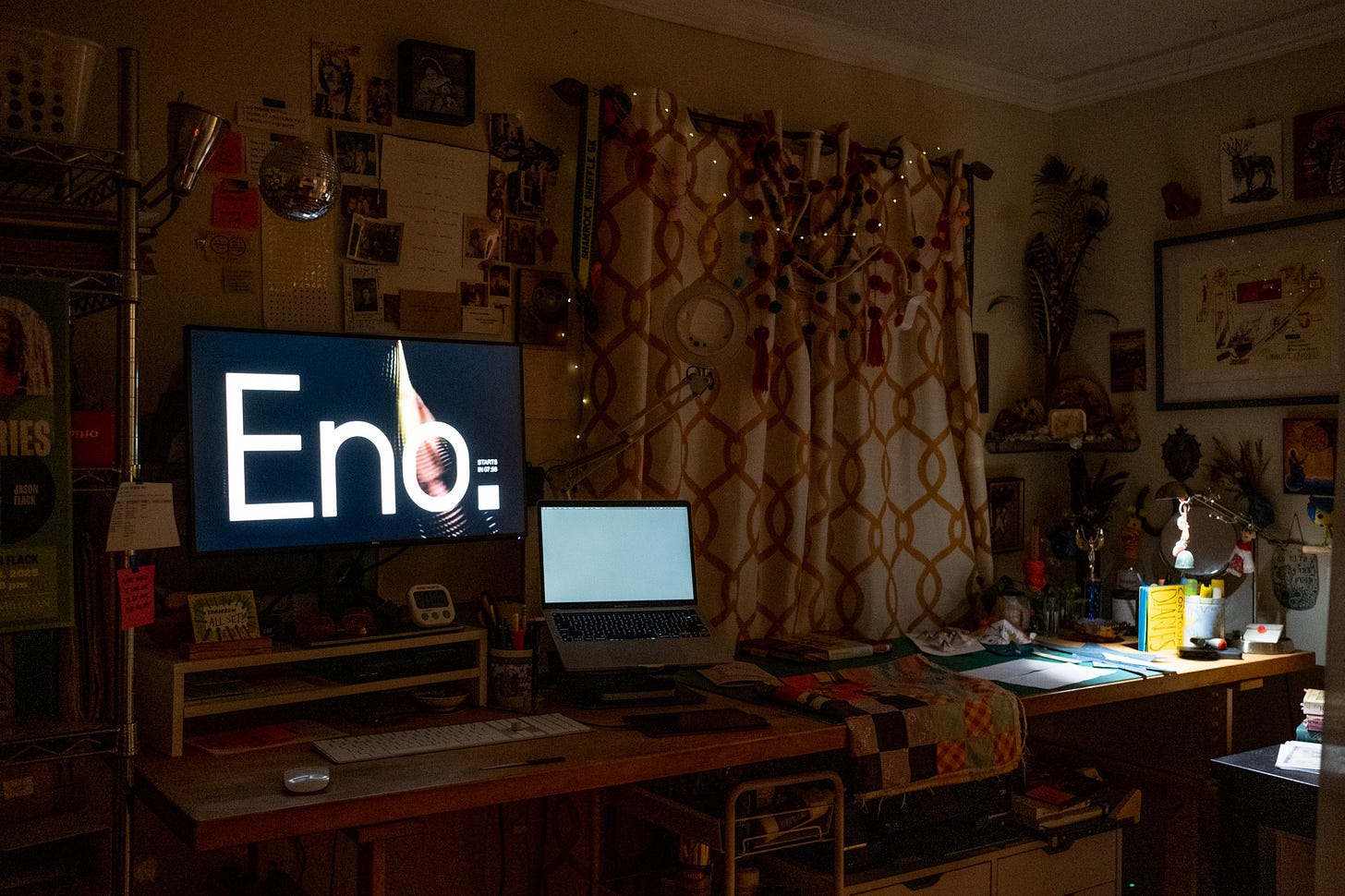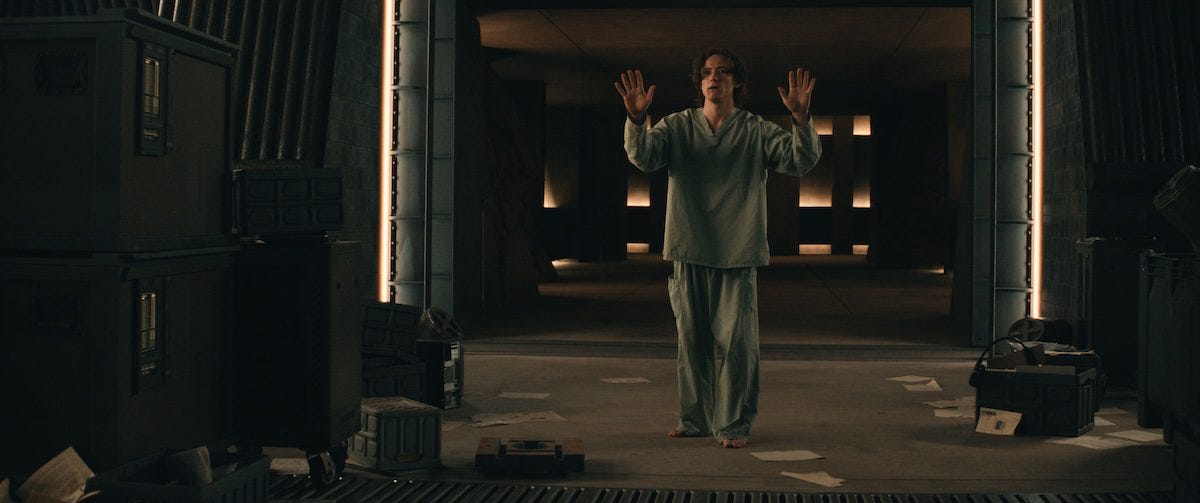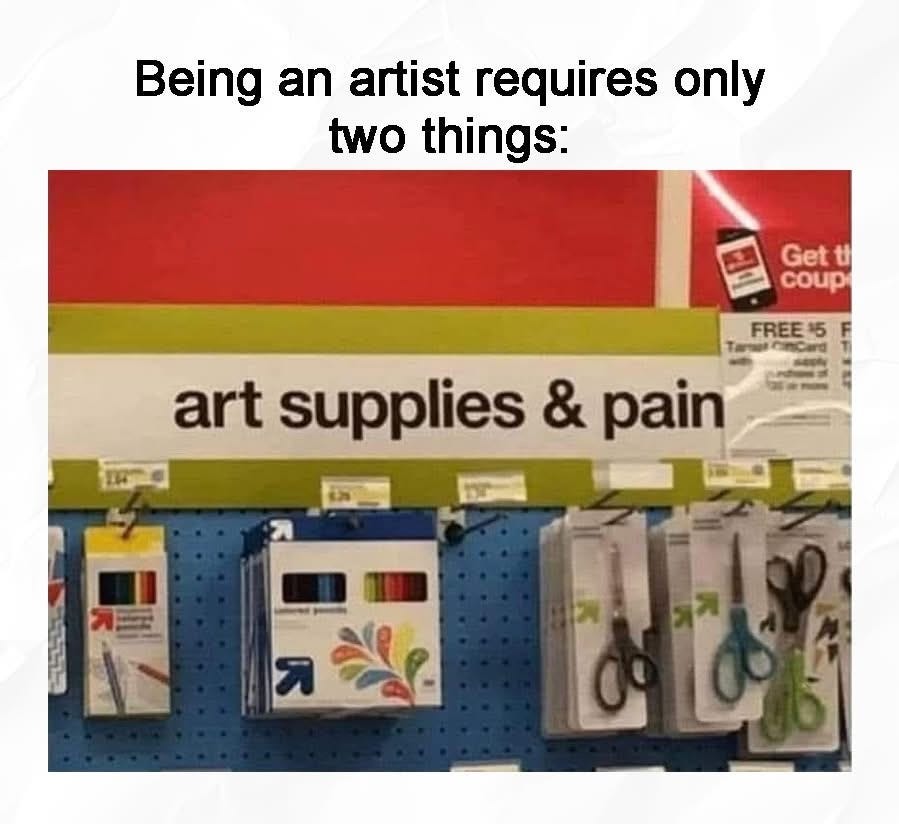Hello there! It's Jocelyn Mathewes from my studio in Appalachia. And I haven't stopped thinking about Eno—a movie that’s never the same twice.
I watched it late one night in March coming home from a long day — just like a movie theatre ticket, you could only watch at the time and date specified on the ticket. The documentary (by Gary Huswit) uses generative AI to construct a fresh version every time. Each ticket time would get you a different version of the film. But no pausing, no delayed viewing. You had to be present.
Looking back over the 50-year career of Brian Eno (musician, producer, activist, and visual artist) was an absolute inspiration and delight. It’s a rare thing when the medium so beautifully fits the content—Eno is a self-described “futurist” with pioneering work in generative music and synthesizers.
Some things I wrote down as I watched my unique stream:
"Eno is delightfully relatable as I watch him yell 'Oh shut up!' at an ad interrupting the YouTube video of a song he's talking about."
"He describes success like an ocean current or a train pushing you in a certain direction. He doesn't like that feeling."
"He says, ‘There was no correlation between how I felt at the time and how the piece stands up in the fullness of time.’"
"Seasonality is really important to him. WHEN something comes out is a part of his work—he wants to tailor the work to the WHEN as much as he can."
"Some criteria he uses for evaluating projects: FUN / WORK / $ / EXERCISE / HOW LONG / GLORY"
"About making music, he says 'it is happening, and I am happening along with it.'"
Collaborators seemed to struggle to define what it was about having him in the room that made the work better, but it was undeniable that Eno offered them something totally unique. I want to be that kind of person, I thought! I want to be the kind of person that folks want to have in the room.
This became especially clear in my version of the documentary that showed how Oblique Strategies developed. It started with a few of friends, trying to work themselves out of a creative funk, writing some little phrases on a set of index cards. The secret to better work isn’t better tools; it’s surrounding yourself with great people who push you to ask better questions.
And I think this ability to see outside and around the tools themselves is what helped Eno stay rooted even as he works in generative music. In the version I watched, we saw footage of a both younger and present-day Brian Eno spending long stretches of time at the parks, streams, and greenspaces near his home. (This vibe clearly comes through in his 1975 album, Discreet Music.)
Eno clearly valued his human connection to nature, the power of connection and collaboration with others and drew on both as a resource for creativity. I think that’s what made his use of technology so connecting and real. Eno reminded me that the root of creative thinking must begin in the concrete world—and with other people.
(Big thanks to
for writing about the documentary and alerting me to the streaming weekend in the first place. I sure hope that another weekend like that happens again soon.)fighting the void
The value of other people is something also comes up in another movie I can’t stop thinking about — Thunderbolts* (The New Avengers). Some spoilers ahead.
But first, some background on my superhero obsession.
Growing up with brothers has something to do with it, but I’ve always loved superheroes. I re-watched all the Christopher Reeves’ Superman movies, including the especially bad ones. The X-Men franchise that ascended in the 80s/90s that the three of us siblings were pretty into as well. Let’s not forget Teenage Mutant Ninja Turtles, either.
I was and am drawn to superheroes whose powers give them access to something unique, but that come at cost. Dr. Strange, for instance, is catapulted into his journey after suffering severe neurological damage to his hands. In his story, he has to wrestle with the loss of abilities that gave him reasons to be arrogant. Strange has to re-learn everything and find a new way of thinking and being; he would not be who he is without having lost something valuable.
In my teenage X-Men phase, gravitated towards Rogue, whose ability to absorb the life force (and more) of anyone she touches make her an danger to others. A paradox is built into Rogue’s powers: one of the most desirable and human things — touch — was a thing to be feared. (It’s pretty messed up if you think about it, actually.) Her power mirrors a kind extreme empathy and sensitivity—pointing to a truth one can get lost in someone else’s identity and emotions, losing your sense of self.
Fast forward to now. I saw Thunderbolts* in the theatre, which feels super special these days. But it wasn’t a super exceptional movie. It was fun and enjoyable, maybe a little rushed. So I didn’t expect it to punch me in the gut… which it did.
All thanks to Bob—
For those who don’t know, Bob is Sentry/Void, a depressed and down-on-his-luck drug addict who volunteered for a secret super solider experiment. The experiment turns him into Sentry, with god-like powers far outstripping many other MCU characters. But something about this new hero is off, and we learn that Bob can also turn into a deadly alter ego, named Void.
After coming home from the theatre, I lay in my bed and played the scene over and over again in my mind where inside the never-ending maze of shame rooms, Bob literally fights against the darkness inside himself.
Being human comes with inevitable darkness and despair. I’ve had my deep moments of despair, and for me there’s always a bit of a low hum going on in the background. I know the low hum of darkness isn’t unique to me.
It is alienating and painful to find yourself in a place where you are completely stuck in despair and you cannot see a way out. It is equally alienating to feel so tired of the same battles over and over… and deflating to find when you’re back to square one.
When I find myself humming the tunes of that black and broken record, I get tired of myself. I hate expressing it over and over again to friends and loved ones. There’s a temptation to fold in on yourself. Many times I’ve been limited and unable to get unstuck for reasons that had nothing to do with other people‘s efforts to help me or encourage me. Sometimes you just stop talking about it, because it’s easier.
But then sometimes God—or others—really are the only things that can heal you.
In the climax of Thunderbolts*, it’s connection with other people that pulls Bob back from the darkness, away from Void, and saves the world from being overcome.
It seems silly to say, but I’m grateful to Thunderbolts* for the image of Bob punching Void — the face of darkness. I’m thankful that he only succeeds because people show up for him. There are definitely seasons and situations where I can feel myself filing towards the edge of that. That image feels close to my heart, and the story helps reinforce hopeful thinking.
Both Eno and Thunderbolts* have stuck with me because they reveal that my creativity and courage are connected to other people. I am very thankful that I have inspiring people to push me forward in my work, and to have my own crew of New Avengers to pull me back into reality.
Thank you for being here.
xo,
jocelyn
P.S. Extra thanks for supporting my work by being a paid subscriber. 🙏
see my work on my website
for speaking/exhibition inquiries & connection, send me an e-mail
find me elsewhere - instagram | facebook | tiktok









I love your analysis--thanks for giving me so much to think about. Your piece reminds me that I should consider movies with as fine an eye as I do literature.